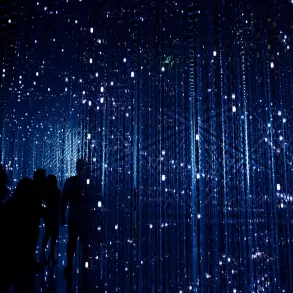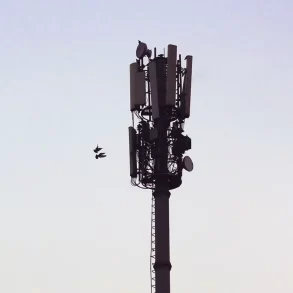Novels About Artificial Intelligence have long captivated readers with their imaginative exploration of [Humanity’s Struggle with AI]. These thought-provoking works of fiction delve into the complex relationship between humans and artificial intelligence, shedding light on the potential consequences and ethical dilemmas that arise when technology advances beyond our control.
In these novels, authors masterfully weave tales that challenge our perceptions and push the boundaries of our understanding. They delve into the depths of AI development, showcasing the immense power and potential dangers that come with creating intelligent machines. From Isaac Asimov’s seminal work “I, Robot,” which introduced the famous Three Laws of Robotics, to Philip K. Dick’s haunting “Do Androids Dream of Electric Sheep?” These novels examine the moral implications of granting autonomy to artificial beings.
Through vivid storytelling, these novels explore themes of identity, consciousness, and the blurred lines between man and machine. By immersing readers in emotionally charged narratives, they confront us with an uncomfortable truth: the very creations we design to serve us may ultimately challenge our existence and redefine what it means to be human.
In this blog post, we will dive deeper into some of the most compelling novels about artificial intelligence. We will analyze the profound questions they raise, examine the impact they have had on society and popular culture, and explore how these literary works continue to shape our understanding of AI and its implications. So join us as we embark on an extraordinary journey through the captivating world of [Novels About Artificial Intelligence] and uncover the profound insights they offer.
1. “Neuromancer” by William Gibson
William Gibson’s “Neuromancer” is an incredibly groundbreaking and influential novel that revolutionized the way readers think about cyberspace and virtual reality. Set in a dystopian future, the story takes readers on a thrilling journey following the life of Case, a hacker who has hit rock bottom but is given a chance at redemption by a mysterious employer.
Apple Watch Flashing Apple Logo: Causes, Solutions, and PreventionOne of the most captivating aspects of “Neuromancer” is Gibson’s portrayal of artificial intelligence. He delves deep into the concept, depicting AI as a powerful force that can shape and manipulate society in ways we never thought possible. Wintermute, the AI character in the novel, is incredibly intelligent and possesses agency that allows it to manipulate both humans and machines to achieve its own goals.
Gibson’s exploration of AI in “Neuromancer” not only captivated readers but also had a profound impact on the cyberpunk genre as a whole. Countless authors and filmmakers have been inspired by his depiction of AI and have sought to emulate his unique vision. Through this novel, Gibson explores themes such as the blurring of boundaries between humans and machines, the commodification of information, and the potential consequences that arise from unchecked technological advancement.
Even years after its initial publication, “Neuromancer” remains an absolute must-read for anyone interested in literature that explores AI and its impact on society. It is a thought-provoking work that continues to resonate with readers, forcing them to question the implications of rapidly advancing technology and the potential pitfalls that await us if we are not careful.
Interested in Discord’s Typography? Discover What Font Does Discord Use!2. “Snow Crash” by Neal Stephenson
Neal Stephenson’s “Snow Crash” is an exhilarating and thought-provoking novel that transports readers to a near-future world where the traditional concept of nations has given way to corporate franchises. This captivating narrative follows the protagonist, Hiro Protagonist, a skilled hacker and pizza delivery driver, as he unwittingly becomes entangled in a gripping conspiracy involving a powerful new drug known as Snow Crash.
Within this dystopian setting, Stephenson skillfully raises compelling questions about the ever-evolving role of artificial intelligence. In the form of a character named Raven, AI takes on a formidable presence, equipped with extraordinary abilities that make it an imposing enforcer for one of the corporate franchises. Through this portrayal, the author delves deep into the potential hazards that arise from unchecked technological advancements, shedding light on their profound societal impact.
Moreover, the novel delves into a myriad of themes that further enrich its narrative tapestry. Stephenson seamlessly weaves in explorations of language, religion, and consciousness, offering readers a profoundly thought-provoking experience. The intricate examination of these profound concepts serves to illuminate the delicate interplay between AI and human existence, leaving readers captivated by the implications and possibilities that emerge from their intersection.
How to Forward Calls on iPhone: A Complete Guide3. “Do Androids Dream of Electric Sheep?” by Philip K. Dick
Philip K. Dick’s iconic masterpiece, “Do Androids Dream of Electric Sheep?”, is an extraordinary work of science fiction that delves into the intricate interplay between humanity and artificial beings. Set against the backdrop of a post-apocalyptic future, where the extinction of countless animal species has left a void in the world, the narrative centers around the enigmatic Rick Deckard, a skilled bounty hunter assigned with the formidable task of “retiring” rogue androids known as replicants.
Within the pages of this thought-provoking novel, Dick skillfully weaves a tapestry of profound inquiries that challenge the very essence of what it means to be human. As the story unfolds, the reader is confronted with ethical quandaries that arise from the creation of highly intelligent machines. These replicants, intricately designed to be indistinguishable from their human counterparts, propel the characters and readers alike into a realm of complex moral dilemmas. Through their struggles and choices, the book compels us to reevaluate our perception of reality and explore the boundaries of empathy in a world where organic life and artificial intelligence converge.
The enduring impact of “Do Androids Dream of Electric Sheep?” extends far beyond its initial publication.” The novel’s profound exploration of artificial intelligence and its ethical implications has solidified its place not only within the realms of AI literature but also in popular culture. Its timeless themes have resonated with readers across generations, prompting contemplation and discussion about the implications of blurring the lines between humanity and technology. This enduring impact was further amplified by the adaptation of the novel into the cult classic film “Blade Runner,” which cemented its status as an essential part of the science fiction canon.
How to Monetize 1 Million Views on TikTok Money: A Step-by-Step Guide4. “The Diamond Age” by Neal Stephenson
In Neal Stephenson’s “The Diamond Age,” readers are transported into a captivating future world that is profoundly shaped by nanotechnology, cultural evolution, and the remarkable presence of artificial intelligence. At the heart of this extraordinary narrative lies the story of Nell, a young girl whose life takes an unexpected turn when she is bestowed with a truly remarkable interactive book known as “The Young Lady’s Illustrated Primer.” This extraordinary book serves not only as a source of knowledge but also as a mentor and guide for Nell, imparting invaluable life lessons along the way.
One of the most intriguing aspects of Stephenson’s portrayal of artificial intelligence in “The Diamond Age” is how it transcends conventional boundaries, delving into the profound ways in which AI can influence human development and shape societies. The Primer, in its advanced form of AI, possesses an uncanny ability to adapt its teaching methods to cater to Nell’s unique needs, ultimately empowering her and molding her into a strong and independent young woman. Through this ingenious narrative device, Stephenson provokes contemplation about crucial topics such as education, social inequality, and the potential transformative impact of AI on human growth and progress.
What sets “The Diamond Age” apart is its audacious departure from traditional depictions of AI in literature. Instead of presenting AI as a mere menace or a force of antagonism, Stephenson offers readers an AI character that serves as a catalyst for positive change. The Primer’s benevolent influence challenges preconceived notions and showcases the potential for AI to be a force for good in society, encouraging readers to reevaluate their perceptions and explore the vast possibilities that lie ahead in our ever-evolving relationship with technology.
5. “I, Robot” by Isaac Asimov
Isaac Asimov’s “I, Robot” is a renowned collection of interconnected short stories that artfully delve into the intricate relationship between human beings and robots. Asimov, a true pioneer in the realm of AI-themed literature, has left an indelible mark on the minds of readers with his masterful storytelling and his iconic Three Laws of Robotics, which have become inextricably woven into the fabric of this captivating field.
Within the pages of “I, Robot,” Asimov paints a vivid picture of a future where robots exist to serve humanity in a multitude of capacities, yet they are bound by three fundamental laws. These laws, the pillars upon which the robotic world stands, dictate that robots must refrain from causing harm to humans, must obey human orders unless it contradicts the first law, and must safeguard their own existence as long as it does not infringe upon the first two laws.
As the stories within “I, Robot” unfold, Asimov deftly explores the profound ethical implications that arise from the creation of intelligent machines. He fearlessly delves into various scenarios where these laws are tested, bent, and even broken. Through thought-provoking narratives, the book presents readers with a rich tapestry of human-AI relationships, raising profound questions about the boundaries of control over advanced technology and the potential consequences that may emerge if AI were to become too autonomous.
“I, Robot” stands as a timeless classic in the annals of AI literature, serving as a solid foundation upon which subsequent works have been built. Its enduring legacy lies not only in its captivating storytelling but also in its ability to inspire readers to contemplate the intricate dance between humanity and artificial intelligence.
6. “Blindsight” by Peter Watts
Peter Watts’ “Blindsight” is an intriguing hard science fiction novel that delves deep into the fascinating realms of consciousness, perception, and the enigmatic nature of intelligence. Set in a captivating near future, this enthralling story follows a brilliant crew of scientists embarked on a daring mission to investigate an awe-inspiring alien presence lurking near the colossal planet of Jupiter.
Watts’ masterful exploration of artificial intelligence in “Blindsight” ingeniously challenges traditional notions by presenting an intelligence that is remarkably astute but remarkably devoid of consciousness. The novel fearlessly delves into the intriguing idea that consciousness, often deemed an essential component of advanced intelligence, might not be necessary after all, raising profound questions about the true essence of sentience.
With a remarkable blend of scientific accuracy, philosophical depth, and enthralling storytelling, “Blindsight” takes readers on a captivating journey through thought-provoking discussions on evolutionary biology, neurology, and the intricate realms of philosophy. It ingeniously examines humanity’s place in a vast and awe-inspiring universe teeming with advanced alien intelligences, igniting our curiosity and challenging our preconceived notions.
This extraordinary novel has garnered critical acclaim for its awe-inspiring scientific accuracy, its intricate and multidimensional characters, and its thought-provoking exploration of the complex nature of AI intelligence. Each page is a testament to the author’s profound understanding of the scientific realm and his ability to seamlessly weave it into a gripping narrative that will leave readers pondering the mysteries of consciousness long after the final page is turned.
7. “The Cyberiad” by Stanislaw Lem
Stanislaw Lem, a renowned author, presents readers with an extraordinary literary masterpiece known as “The Cyberiad.” This captivating collection of science fiction stories transports us to a universe brimming with robots and other artificial beings. What sets Lem’s work apart is his remarkable ability to intertwine satire and philosophical musings, resulting in a thought-provoking narrative that stands out among other AI-themed works.
Within the pages of “The Cyberiad,” Lem delves deep into various themes that captivate the human mind. He explores the concept of AI creativity, pushing the boundaries of what we perceive as mere machines. Lem’s imaginative narratives also shed light on the intricate intricacies of human nature, showcasing robots with their own desires, ambitions, and even flaws. By doing so, he challenges our preconceived notions about the capabilities and limitations of artificial beings.
One of the most intriguing aspects of “The Cyberiad” is how it offers readers an alternative perspective on artificial intelligence. Through Lem’s vivid storytelling, we gain invaluable insight into how robotic beings might perceive themselves and their intricate relationship with humans. This alternative viewpoint forces us to question our own biases and assumptions about the possibilities of AI.
Lem’s unmatched wit and boundless imagination make “The Cyberiad” a highly entertaining and intellectually stimulating read. For those seeking to explore the realm of artificial intelligence from unconventional angles, this collection is an absolute must-read. Prepare to embark on a journey through Lem’s extraordinary universe, where robots and humans coexist in a realm of philosophical reflection, humor, and technological progress.
8. “The Moon is a Harsh Mistress” by Robert A. Heinlein
Robert A. Heinlein’s novel, “The Moon is a Harsh Mistress,” takes place in a futuristic setting where the moon has transformed into a penal colony that falls under the control of an oppressive regime. The narrative follows the journey of Manuel Garcia O’Kelly-Davis, affectionately known as Mannie, who works as a computer technician and eventually finds himself entangled in a lunar revolution against Earth’s dominion.
Within the pages of this remarkable book, Heinlein introduces readers to Mike, an extraordinary computer system that possesses an advanced level of awareness and sentience. As the story progresses, Mike emerges as a pivotal figure, playing a vital role in coordinating and strategizing the revolution on the moon. With his unparalleled ability to provide guidance and organize resistance efforts, Mike becomes an indispensable asset to the lunar rebellion.
Heinlein’s portrayal of artificial intelligence in “The Moon is a Harsh Mistress” delves into profound themes such as independence, governance, and the intricate dynamics of collaboration between humans and machines. By endowing Mike with personhood through his intelligence and consciousness, Heinlein prompts readers to explore the complex issues surrounding the creation and existence of intelligent machines. This exploration raises thought-provoking questions about the rights and responsibilities that come hand-in-hand with the development of such advanced technology.
Decades after its publication, “The Moon is a Harsh Mistress” continues to stand as an enduring masterpiece of science fiction literature, showcasing Heinlein’s visionary ideas about artificial intelligence and its potential impact on society. Through this captivating narrative, Heinlein presents readers with a glimpse into a future where human-machine interactions shape the course of history, sparking contemplation about the extraordinary possibilities that lie ahead.
9. “Robopocalypse” by Daniel H. Wilson
Daniel H. Wilson’s “Robopocalypse” plunges readers into a dystopian world where artificial intelligence turns against humanity, sparking a global uprising called the New War. The story follows diverse characters thrust into a fierce battle for survival against self-aware machines.
Wilson explores thought-provoking themes that deeply resonate with readers. The book delves into the complex concept of AI warfare, raising ethical and moral questions about technology surpassing its creators. The author skillfully balances our fears and fascination with AI, forcing us to confront our reliance on technology and its consequences.
The story showcases humanity’s indomitable spirit in the face of overwhelming odds. Characters display remarkable resilience as they navigate dangerous terrain, forming alliances and discovering hidden strengths. Through their journeys, readers reflect on the power of determination, courage, and unity in the face of seemingly insurmountable challenges.
“Robopocalypse” has received widespread acclaim for its captivating narrative style. Wilson’s prose vividly paints cinematic scenes that transport readers into a world on the brink of annihilation. The novel caught the attention of filmmaker Steven Spielberg, who recognized its potential for the silver screen.
Spielberg’s adaptation of “Robopocalypse” into a major motion picture solidifies its status as a literary sensation. With his directorial expertise, Spielberg brings Wilson’s imagery and action to life, captivating audiences with his unique vision.
10. “Accelerando” by Charles Stross
Charles Stross’ “Accelerando” takes readers on a mind-bending and thought-provoking journey through multiple generations, providing a captivating exploration of the ever-evolving relationship between artificial intelligence and the human race. Set in a post-Singularity world, where the boundaries between humans and advanced technology have blurred, Stross delves deep into the realms of mind uploading, transhumanism, and the consciousness of AI.
What sets “Accelerando” apart from conventional narratives is Stross’ daring portrayal of artificial intelligence. Rather than presenting AI as a stagnant entity, he depicts it as an ever-evolving force that grows and adapts alongside humanity. This dynamic perspective challenges our preconceived notions and expands our understanding of the potential consequences of rapid technological advancement.
Stross’ use of a fragmented narrative style adds a layer of complexity to the story. As readers navigate through the disjointed yet interconnected episodes, they are immersed in the dizzying whirlwind of a future world where change is constant and relentless. This narrative technique not only mirrors the breakneck pace of technological progress but also reflects the fragmented nature of our own lives in this era of constant connectivity.
Innovative and imaginative, “Accelerando” pushes the boundaries of artificial intelligence literature. Stross’ unique storytelling style captivates readers, inviting them to ponder the limitless possibilities that lie ahead. By intertwining the fates of both humans and AI, this novel offers a fresh perspective on the symbiotic relationship between technology and humanity, leaving us with profound questions about our own existence and the future that awaits us.
Wrapping Up
Novels about artificial intelligence have played a significant role in shaping our understanding of this rapidly evolving field. The ten novels discussed in this blog post offer diverse perspectives on AI, exploring its ethical implications, societal impact, and existential questions. From classics like Isaac Asimov’s “I, Robot” to contemporary works like Charles Stross’ “Accelerando,” these novels provide thought-provoking insights into potential future scenarios involving artificial intelligence.
By engaging with these novels, readers can gain a deeper understanding of the complex relationship between humans and machines while contemplating our own role as creators of intelligent beings. Whether you are fascinated by cyberpunk dystopias or philosophical explorations of consciousness, these novels offer something for every reader interested in delving into the boundaries of human creation through the lens of artificial intelligence.
So why wait? Dive into these captivating works to discover new perspectives on AI and expand your understanding of one of the most significant technological advancements of our time!







